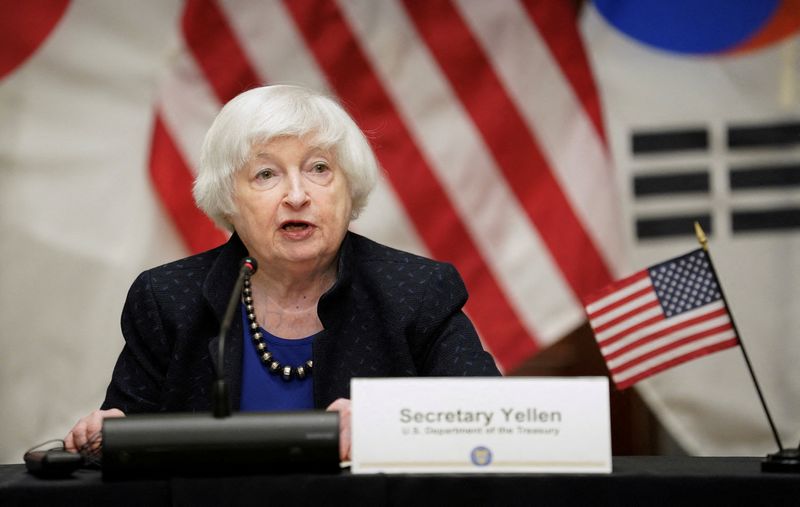U.S. Treasury Secretary Janet Yellen is taking a proactive stance to reshape the narrative surrounding the Biden administration’s economic achievements, especially as the country approaches the Nov. 5 presidential election. In her upcoming remarks planned for a banking conference, she aims to highlight the positive strides made under President Joe Biden’s administration, asserting that Americans are, in fact, better off today than when he assumed office. Yellen’s commentary comes on the backdrop of significant economic indicators such as robust growth, historically low unemployment rates, decreasing inflation, and increasing wages, which she intends to bring to the forefront of public discourse.
Despite these positive economic indicators, Yellen’s challenge lies in addressing the pervasive concerns among voters, particularly in seven battleground states critical to the upcoming election. Many of these voters have shifted their focus away from conventional economic metrics and are primarily concerned with the rising costs of living that have emerged post-COVID-19 pandemic. Polls reveal a stark reality; a Reuters/Ipsos survey indicates that 61% of voters feel the economy is heading in the wrong direction, and an even higher 68% express dissatisfaction with rising living costs. This perception contributes to Donald Trump’s stronger position in polls relative to his Democratic rival Vice President Kamala Harris, despite the Biden administration’s notable economic performance.
Trump has adeptly capitalized on economic dissatisfaction in his campaign, consistently asserting that Americans are worse off compared to four years ago. In response, Yellen is leveraging statistics to remind voters of the circumstances in early 2021, emphasizing the dire state of the economy at the time of Biden’s inauguration. She pointed out the significant health crisis spurred by COVID-19, with daily fatalities soaring and unemployment rates considerably higher than they are now. Yellen’s remarks aim to frame a narrative of recovery and resilience, contrasting the current economic scenario against the backdrop of pandemic-induced challenges.
Yellen pointed out the vibrant state of the U.S. economy, characterized by robust consumer spending and business investments that are driving growth. She confidently noted that economic expansion continues to flourish, with further positive reports anticipated, including a projected GDP growth above 3% for the third quarter. However, labor market dynamics are also complex, as payroll growth might see limitations due to strikes, such as the Boeing strike affecting 33,000 workers. Acknowledging these challenges is essential for Yellen as she seeks to paint a comprehensive picture of the economic landscape.
Yet, amid these achievements, Yellen remains cognizant of the work still necessary to alleviate cost-of-living pressures. While acknowledging that inflation management needs continued focus, she highlighted a critical point: wages have increased at a pace that outstrips inflation, thus allowing the average American to access more goods and services compared to the pre-pandemic era. Additionally, she notes a surge in entrepreneurial activity, suggesting renewed optimism among Americans regarding the economy—a critical element in promoting a positive economic narrative.
In summary, as the Biden administration gears up for the pivotal election, Yellen’s remarks underscore a dual challenge: celebrating economic successes while addressing the electorate’s immediate concerns. She aims to shift the focus back to the overall recovery story in contrast to the dissatisfaction underlying public sentiment. Through these narratives, she hopes to herald a robust economic future and cultivate revitalized confidence in the Biden administration’s ability to steer the nation toward sustained growth and prosperity. The upcoming weeks will reveal whether this narrative effectively resonates with voters ahead of the election.

